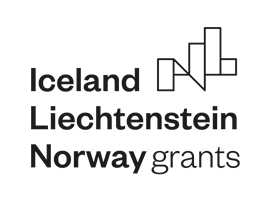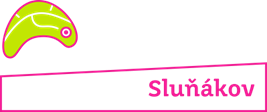Project team
Main teachers responsible for the outputs

Ľuboš Slovák
Ľuboš is a teacher and researcher with an interdisciplinary background. He inquires into the relationships between humans and the more-than-human world in various ways: studies it scientifically, reflects it philosophically and tries to change it through teaching and activism. His main professional interests include eco-philosophy, deep ecology and the philosophy of nature. Through this project he wants to delve deeper into deep ecology and seek enlivening ways of teaching and learning that would move beyond the usual focus on rational thought.
He is finishing his PhD study at the Department of Environmental Studies of FSS MU in Brno where he explores the transformations of the idea of nature in recent decades. In connection with this he also deals with the concept of the Anthropocene. He also teaches at the same department – he leads a seminar focused on key texts of environmental thinking and co-teaches a course on global environmental problems. In the Global Change Research Institute CAS he researches non-material values of nature and the landscape in Moravia. Ocasionally, he also tries to defend those that do not have a voice in our society through activism.
He graduated in Computer Science and Social and Cultural Ecology at Charles University in Prague. In the past he also dealt with sustainability of film festivals on the position of environmental ombudsman of the International Documentary Film Festival Ji.hlava, as a member of the Limity jsme my movement helped establish the Czech Climate Camp tradition, co-founded the non-fiction publishing house Nová beseda, lead an interdisciplinary R&D project aimed at web book publishing, lead the technical development of the VoD service DAFilms.com and developed internet infrastructure software for the Czech national domain registry CZ.NIC.

Tomáš Daněk
Tomáš is an interdisciplinary-oriented scholar, teacher and researcher, focused on the relationship between the philosophy of science, biological conservation, environmental studies/issues and environmental humanities. He spent most of his career in a scholarly environment that established ‘parallel polis’, an autonomous education platform during the communist era in Czech Republic. With the upcoming Anthropocene era, he is looking for relevant (not necessarily new) ways to understand our present times. He seeks to reconnect academia with the world outside of screens, cars and office chairs. He believes that there is an inner connection between Norwegian deep ecology and the Czech school of phenomenology, and sees this project as a chance to reveal an affinity that has not been previously acknowledged.
He teaches at both Palacký University and the Charles University. In the last seven years, he has worked as coordinator of the study programme Environmental studies and Sustainable Development at the Department of Development and Environmental Studies (UP). He teaches courses in touch with Environmental Science, Ethics and Philosophy as well as Sociology and Anthropology.
Tomáš graduated in Environmental Sciences at Palacký University and Environmental Humanities a Masaryk University. His Ph.D. thesis was focusing on the consequences of western understanding of nature for environmentalism. He worked as organizer and coordinator of projects dedicated to interdisciplinary cooperation and cross-sectional transfer of knowledge. For almost three years, he worked at Czech Environmental Information Agency.

Martin Lee Müller
Martin brings contemporary philosophy into a critical conversation with indigenous studies, Earth systems science, ecology, and poetry, developing an ecology of language, and an ecology of story. Currently, he is a postdoctoral researcher at the Department of Teacher Education and School Research at the University of Oslo. His hope is to introduce more experiential learning into the Norwegian educational system and this project is a key element of such progress in terms of networking and knowledge exchange.
Martin received his doctorate in philosophy from the University of Oslo in 2016. Before that, he received his master’s degree in Culture, environment, and sustainability at the University of Oslo’s Center for Development and the Environment. He has previously helped build teaching centers in rural Mongolia, worked as a kindergarten teacher, been an elementary school librarian, and led a wilderness school in the Norwegian forest. Recently he has also been touring as a storyteller to festivals in the UK and Scandinavia, with a stage performance inspired by this book. Being Salmon, Being Human. The performance weaves together philosophy, traditional storytelling, and Samí joik music. He worked as an associate professor at the Steiner University College in Oslo and taught at the Center for Development and the Environment. He is the co-leader of the non-profit Small Earth Institute, and co-founder of the non-profit villaks.org.

Per Ingvar Haukeland
Per Ingvar Haukeland is an ecophilosopher and community activist, and a professor at the University of South-Eastern Norway. He studies how tradition and innovation can be brought together to revitalize the relationship between culture and the living land, and uses storytelling, eco-entrepreneurship, handicrafts and outdoor education as methods in his work.
Haukeland collaborated closely with philosopher Arne Naess (founder of deep ecology) from 1990 until Arne’s death in 2009, teaching in tandem with Naess in Norway and abroad. He is the co-author, with Naess, of the Norwegian bestseller Livsfilosofi (published in English in 2002 with the title “Life’s Philosophy: Reason and Feeling in a Deeper World” ). He holds a Masters in education from the University of Oregon and a Ph.D. from the University of California at Berkeley in ecological education, rural community economic development and green entrepreneurship.
He is the co-founder of the Alliance for Wild Ethics and is actively involed in the Transition Town initiative in Bø, Telemark. He has worked 15 years at Telemark Research Institute as the Head of Centre for Nature and Culture-based Innovation, focusing especially on participatory action research for sustainable community economic development. His own research and activism is concerned with small communities in the rural periphery of Norway. In such communities, Per Ingvar and his colleagues work to revitalize the intimate reciprocity between culture and the living land by reviving place-based farming and forestry traditions, renewing traditional storytelling and traditional handicrafts like ski-making, and integrating the management of both private and collective goods. He is also involved in the nature-connection movement in Norway.

Miloslava Hazuchová

Romana Pálková
Romana Pálková has ten years long experience in the field of preparing and running lessons for children and school students focused on outdoor learning and environmental education. In 2012-2014 she cooperated on the Real World Learning Network Project, which explored and shared successful approaches to Real World Learning through the outdoor classroom that leads to action for sustainable development. In 2017-2019 she coordinated courses within the Erasmus+ project Nature as the Inspiring Place for Education at Sluňákov ecological centre, which developed competences of Sluňákov’s teachers in the field of education of adults in the context of being inspired by nature.
Supervisors

Karel Stibral
Associate professor and head of the Department of Environmental Studies FSS MU. He studied Aesthetics, History of Art and his Ph.D. reached in the field of Philosophy and History of Sciences at the Faculty of Sciences at Charles University in Prague. He also studied at the Institute of Philosophy, Jagellonian University, Cracow. He is focused on the history of aesthetic perception of nature in the 18th-20th century, connections between science and art, history of exploration of the Czech mountains and history of nature conservation. He published several books about these topics.

Pavel Nováček
Head of the Department of Development and Environmental Studies, Faculty of Science, Palacký University and a leading authority in Sustainable Development Studies in the Czech Republic. He is the author of 22 books, hundreds of scientific and popular articles, and a member of distinguished environmental panels. His field of interest is sustainable development, global environmental issues and foresight. He is a member of the Planning Committee of the Millennium Project and co-chairman of the Central European Node of the Millennium Project and Chairman of the Czech National Association of the Club of Rome (2008 - 2018).

Michal Bartoš
Michal is an ideological author, co-founder and director of Sluňákov Centre for Environmental Activities and adjoining site called the Nature Gallery. Michal graduated from the Faculty of Science of the Palacký University and earned his PhD at the Department of Environmental Studies at Masaryk University after submitting his dissertation “Shifts of Environmental Ideology within the Public Space”. Development of the relationship between a man and landscape is his lifetime interest. More than 30 years he has been organising the Environmental Days Olomouc. He authored many articles published in textbooks, academic periodicals and peer-viewed magazines, regularly holds workshops for teachers and his essays are frequently published in a wide range of periodicals.
Also significantly contributed to the project

Martina Mercellova
Martina is a research assistant at the Department of Law and Governance at Norwegian Business School, and was also affiliated with The Arne Næss Programme of Centre for Development and the Environment at the University of Oslo. In her own research, she investigates where the first-person embodied self stands in relation to nature; and takes the angle of environmental ethics to critically investigate different aspects of relationality and intersubjectivity involved in the construction of a first person narrative "I". She looks at various types of continuities regarding self-identification (linguistic re-presentation and perception, definition and the use of metaphor) in life-writing and ecocritical literature. This project contributes to what she believes is at the heart of any well-working climate approach: personal involvement of embodied narrative identities.

Nikola Benčová
Nikola is a poet, performer and researcher whose main focus and practice lie in changing identities in human and non-human realm. Combining imagination in fields of environmental studies, deep ecology, politics, sci-fi, psychology and poetry, she is mainly focusing on the connection with other bodies. Her experiments with materiality in sculpture, vipassana and other embodied practices brought her to researching the matter that lies within words. She hopes that the collaboration between Norwegian and Czech universities will eventually lead to creating a more embodied knowledge based course, so that the young students will not only be flooded with theory but also have the chance to experience the living world with their own sensuality, and discover the space for the nonhuman within themselves.
The project Improving environmental education through a synergy of knowledge, experience and critical reflection inspired by Scandinavian and Czech ecophilosophy (EHP-CZ-ICP-3-013) is financed through the EEA Grants 2014-2021, program Education which represent the contributions of Iceland, Liechtenstein and Norway to reducing economic and social disparities in the European Economic Area and strengthening bilateral relations with 15 EU countries.




